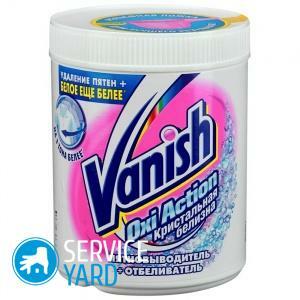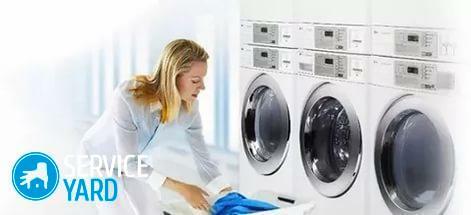For the majority of autonomous heating systems, in what way would not be heated via radiators or floor heating installed housing, the main heat conductor is heated coolant. In most cases, the coolant acts as ordinary water (to 70% of the heating systems used in households), but other fluids may be used for these purposes. Water is the most affordable and cheap coolant. The only disadvantage of this option is that the water is very sensitive to changes in ambient temperature, significantly changing its physical properties.
Another equally common variant with the coolant, antifreeze - the liquid used for floor heating instead of water. Unlike boiler water, antifreeze liquid is a substance produced based on ethylene glycol and propylene glycol. The special additives are added to the composition (chemical additives) which decreases due to chemical and physical activity of the fluid.
On a note: antifreeze, unlike the ordinary water has a low temperature threshold. Depending on the concentration and composition of the additives freezing temperature can vary between 30 - 65 0C below zero.
Consider the various options with the choice of coolant for underfloor heating. Which is better, water or antifreeze, as far as practical to one or the other option?
What selection based fluid system for heating
When planning the installation of a home under the scheme of the heating system "warm floor" should not only pay attention to the kind of heating devices and a method of laying the heating circuit, but also on the type of fluid that will play a role coolant. The pipeline system for underfloor filled generally those compounds which can be used for the operation of the radiators. The only caveat - the time of purchase is necessary to determine what the composition is suitable for a particular method of heating.
Antifreeze different marks can have different properties, which are determined by the amount and types of additives included in the composition of the liquid. For this purpose is better to deal with the kinds of antifreeze see how behaves in the different operating modes or that liquid.

Main article: how to choose the pipes for floor heating?
For reference: Due to the spread of coolant for the heating circuit reaches the desired heating effect - there is a uniform heat the entire floor surface, whereby the entire interior of the dwelling is heated to the necessary temperature.
With a choice of the type of coolant is best determined at the design stage. Physical properties of the liquid are placed in the thermal and hydraulic calculations. Usually for standard projects all the thermal calculations are based, taking into account the use of ordinary water. In the case of anti-freeze is necessary in calculations to make some adjustments. All the matter in the technological parameters of equipment.
For example: for normal operation with underfloor heating zone length of not more than 50 m, it is possible to do without the installation circulating pump. If heat is required similarly extensive space and area required to install the pump.
Attention! When working with plain water, according to the manufacturer of pumping equipment performance and pressure parameters of it. But for what would be on the heating system normally circulate antifreeze need to purchase a pump with a reserve capacity.
In addition, it is necessary to set the circulation pump properly. Wet pump impeller or rotor must be horizontal. Otherwise, a pump for underfloor installed upright will save up to 30-40% of its capacity. In order that would normally circulate antifreeze for the water system, the pump head should be 50-60% more than in the case of ordinary water. This is the first.

Main article: what to choose, radiator or floor heating?
Second, it is necessary to take into account the increased length of the heating zone and the diameter of pipes used when dealing with other liquids. Antifreeze is low compared to water, heat transfer, however for the normal functioning Heated floor heating system, a more intensive circulation of coolant. Not all types of pipes used for heating circuit, may interact with antifreeze. For this purpose, produced a special pipe having a corresponding diameter and have weak reactivity on the interaction with chemical compounds.
So after all, what kind of coolant is best? Ordinary water or antifreeze
Precise and unequivocal answer to this question is no. The thing is, what do you prefer, and what housing conditions maintained your autonomous heating system. There are a number of aspects to which attention should be paid to stay at a particular version. For this purpose, it suffices to know the advantages and disadvantages possessed boiler water and other fluids used as coolant.
Using water for underfloor
Let us consider the benefits of water used in heating systems. Plain, unprepared water we use every day at home, is the most accessible and cheapest option. This is the most important advantage, however, there are other advantages of this option. For example:
- eco-friendly and completely safe for the inhabitants of coolant at home;
- Water has a high heat capacity, which significantly affects the quality home heating;
- fast and affordable way to maintain the required amount of coolant in the system;
- broad scope of application. Water is suitable for almost all heating systems such as open and closed.

Having dealt with the benefits of water, do not forget about the shortcomings of the coolant. Neglecting the physical properties of water may adversely affect the quality of the work efficiency of heaters and heating systems.
If we consider the situation in detail, then the operation of the water in these unpleasant situations can arise as a coolant:
- the water used for domestic purposes, contains large amounts of sedimentary impurity that adversely affects the patency of the heating system. Underfloor heating, which relate to the heating system gated property is the coolant is not critical, since the contour circulates almost one and the same volume of liquid;
- excessive oxygen content of the water increases the corrosive effect of metal structural elements. Due to competent collection pipe for the pipeline is possible to minimize the influence of this negative factor;
- freezing the pipeline system is a most significant drawback. Under the influence of low-temperature water freezes, increasing significantly in volume. Accordingly, such a fluid condition can lead to disruption of the integrity of the pipeline;
- part of a complete replacement of the heating medium in the heating system (at least 1 time in half a year).
Of all these shortcomings the freezing of water is the most significant reason that many prefer other liquids. However, even in such a situation, the heating circuit assembly using tubes of plastic material, may decide on a time problem.
On a note:polypropylene pipes and polyethylene least susceptible to damage due to freezing system.
And the last. Frequent replacement of coolant is not such a costly thing in the entire heating circuit. Drain semiannually water from the system and fill with the new at any time, without spending a penny.
As one embodiment of the use of water for underfloor can be used distilled water. This option is a bit more expensive than in the case with the usual tap water, however, and the problems in this case, the functionality of the pipeline will be an order of magnitude less.

Water in all respects is an ideal material for use as a coolant. In some cases, in order that would make the heating system more efficient when working with plain water, try to use prepared water. In the process of preparing the liquid decreases its rigidity. Refluxing allows to remove from water sedimentary impurities and salts. Adding small amounts of quick lime and soda water will improve performance.
Antifreeze
For that category of consumers who have the means and prefer to have an expensive heating equipment, the most practical option would be to use antifreeze. This fluid, as already mentioned, is made of synthetic substances, propylene glycol and ethylene glycol. antifreeze solution is a polyhydric alcohol-type liquid agent prepared for use in the heating system. By adding a special chemical additives improve the physical and performance properties of the liquid. The use of the heating system of automotive antifreeze is strictly prohibited.
Important! It should be remembered that antifreeze may be made based on ethylene glycol, poison strongest chemical nature. When human contact with this substance likely strongest poisoning. Ingestion Human 100-300 ml of this liquid may result in a fatal outcome.
High toxicity antifreeze based on ethylene glycol, especially as a result of fumes can cause the development of the inhabitants of the house dangerous chronic diseases. Despite the high degree of risk, the use of antifreeze based on ethylene glycol found its application. Compared with other brands, this composition an affordable price. Antifreezes marks produced on the basis of ethylene, crystallization has the following parameters. The intensity of crystallization depends on the fluid density.

However, if the price in terms of ethylene glycol is as profitable, its physical and operational characteristics are far from ideal. The following points can be attributed to substantial disadvantages:
- antifreeze based on glycol has a high reactivity, which significantly affects the intensity of the corrosion processes;
- a coolant has the property of foaming under intense heat and increased circulation;
- antifreeze this mark has a higher fluidity compared with the water, which sometimes becomes a cause of leakage of the pipeline in the most unlikely places and compounds. Because the highly poisonous liquid such leakage fraught with great trouble;
- due to overheating ethylene reacts at which intense precipitation. In view of raising the temperature of the coolant over 700C, the coolant is significantly reduced the heat transfer effect.

Antifreeze on glycol basis is a safe option. Despite the higher cost, liquid copes with its responsibilities. The presence of special additives can significantly reduce the threshold coolant freezing. Almost complete harmlessness antifreeze allows the brand to actively use with home heating systems.
In custody
After reviewing the shortcomings brands of antifreeze, made on the basis of ethylene glycol and propylene glycol, can draw three conclusions.
First. For underfloor heating, which is considered a low-temperature heating system, use the brand of antifreeze can be, however it requires careful selection of consumable assembly for completely sealing the heating circuit. Water circuit, in this case the closed type, so the ethylene glycol will be calm. Without apparent harm to circulate through the water cycle.
Second. In case of overheating of the antifreeze type loses its basic performance, so this option is not suitable for heating systems based on solid fuel boilers.
Third. You are able to choose which option preferred. There are tools, use expensive, but safer antifreeze, made on the basis of propylene glycol. Do you want to save, use ethylene glycol. Only in this case it requires great care and accuracy during the operation of the heating system.

For those who are constantly experiencing winter struggle with low temperatures, the use of antifreeze is the best option. In all other cases, the safest, most practical and affordable option would be the use of ordinary water. Prevent the defrost system can, if we strictly abide by the rules of operation of the heating system and adhere to technological parameters of heating appliances.



